A decision is expected from an Italian court later this month over whether Muslim migrants can pray inside two cultural centers in the northeastern city of Monfalcone.
In Monfalcone, a large industrial port city in northeastern Italy, local Muslims attend Friday prayers in a concrete parking lot.
Piles of shoes ring the men, who bend their heads, protected only by thin colorful prayer mats from the hard ground.
The men have been praying in this parking lot since last autumn, when the town's administration prevented them from praying inside two Muslim cultural centers.
Monfalcone has been governed by right-wing League party (La Liga) mayor Anna Maria Cisint since 2016.
Around a third of the city's almost 30,000 inhabitants are immigrants. Many have been legally living and working in Italy for decades.
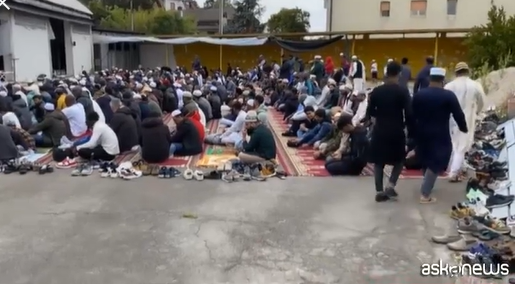
Migrants from Bangladesh
A large proportion of Monfalcone’s migrants are from Bangladesh, attracted by the shipyard work for which the town is famous. Many of them are Muslim.
According to the French news agency, Agence France Presse (AFP), the construction site where the men currently pray is privately owned by a man named Rejaul Haq.
He expressed frustration in an interview with AFP over harassment he said he's experienced from the city’s authorities.
"Tell me, where should I go?" asked Haq, who is naturalized and arrived in Italy in 2006. "Why do I have to go outside of Monfalcone? I live here, I pay taxes here!"
Also read: The stories Bangladeshi migrants told on a rescue ship
Haq told the left-leaning La Repubblica newspaper that he bought the site for 350,000 euros in 2018 to build the cultural center as a place for prayer.
He explained that after buying the site, regulations changed, barring him from building the center.
When asked by a La Repubblica reporter if he'd been planning to build a mosque on the site, Haq said no, explaining he was looking to construct a "cultural center that would offer lots of activities."
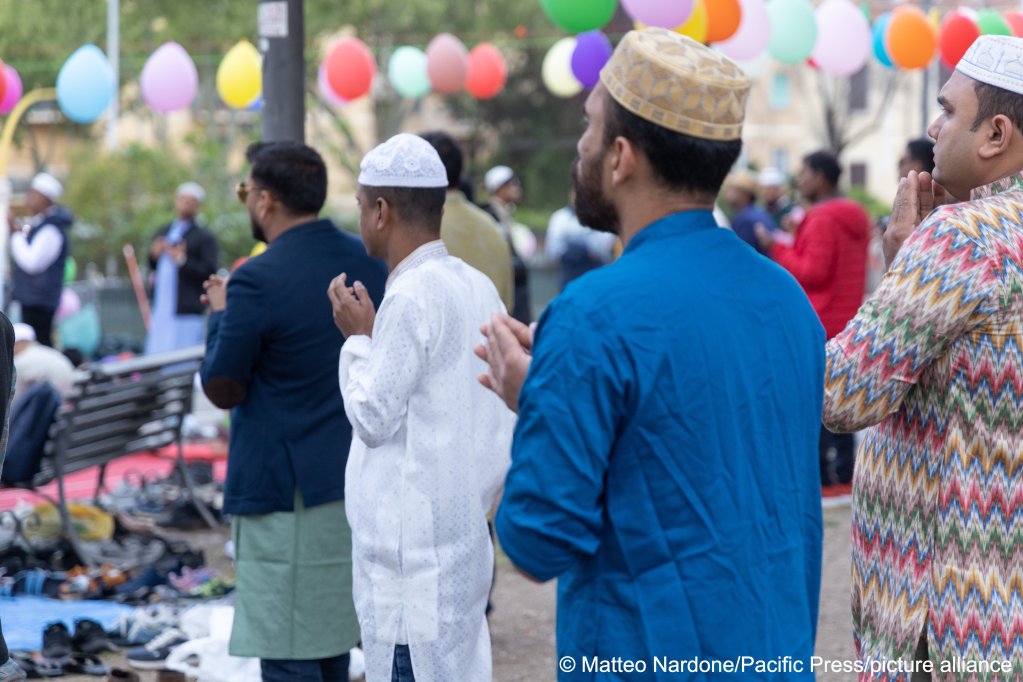
Mosque or cultural center?
Local mayor Cisint denies charges of harassment or discrimination. She says Italy’s urban planning regulations limit the establishment of places of worship, reports AFP.
She said she doesn't want to stop people from praying.
"As a mayor, I’m not against anybody. I wouldn’t even waste my time being against anybody, you see, but I’m also here to enforce the law," she said.
The dispute in Monfalcone has become so entrenched that the Regional Administrative Court TAR has been tasked to mediate between the Muslim community in Monfalcone and the mayor, Italian left-wing daily Il Manifesto reports.
'An act of profound arrogance'
The Muslim community said it proposed numerous compromises, including publishing different prayer sittings to avoid exceeding the numbers allowed inside the cultural centers, Il Manifesto reports.
But local authorities didn't respond to these proposals, members said. When Ramadan came around, they started hosting open-air prayers in the town center.
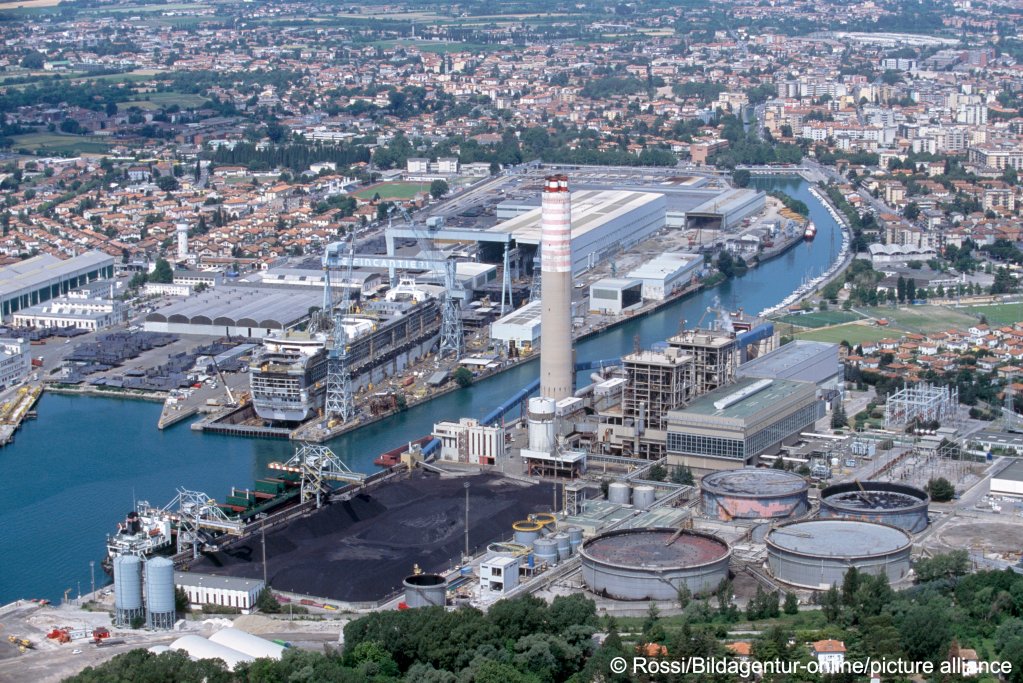
Cisint told Il Manifesto she felt that she was bearing witness to "an act of profound arrogance."
Also read: Bangladeshi migrants among largest groups arriving in Lampedusa
She said that pushing to pray in the middle of the town demonstrates that the community is trying to do things that are not allowed under Italian law.
“This kind of demand really uncovers the true faces of these people," she told the newspaper. "That is to say, they want to do just what they want to do, in the way they want to do it."
The situation is 'incredibly delicate' and needs to be handled 'very carefully'
The prefect for the local region Gorizia told Il Manifesto that the situation was "incredibly delicate" and needed to be handled "very carefully."
In Catholic-majority Italy, Islam is not among the 13 religions that have official status under Italian law, and that complicates efforts to build places of worship, reports AFP.
In fact, one of the main Muslim associations in Italy, Italian Islamic Religious Community (COREIS), told the news agency there are fewer than ten officially recognized mosques in the country. COREIS member Yahya Zanolo says being relegated to makeshift structures "feeds prejudice and fear in the non-Muslim population."
Also read: Two Bangladeshi citizens detained on trafficking charges
Muslims in Monfalcone told AFP they had begun to feel a "palpable sense of distrust, if not outright hatred" from some Italian residents of Monfalcone.
'Mum, are we Muslims bad?'
One man, a 38-year-old shipbuilder named Ahmed Raju, said he had taken to mostly praying at home since praying in the cultural centers had become off limits.
Raju told AFP: "You feel like you’re in front of a big wall, that you can’t break down. We’re foreigners. We can’t change the situation."
Sharmin Islam, another local Muslim, told AFP that her young son, who was born in Italy, came home from school and asked: "Mum, are we Muslims bad?"
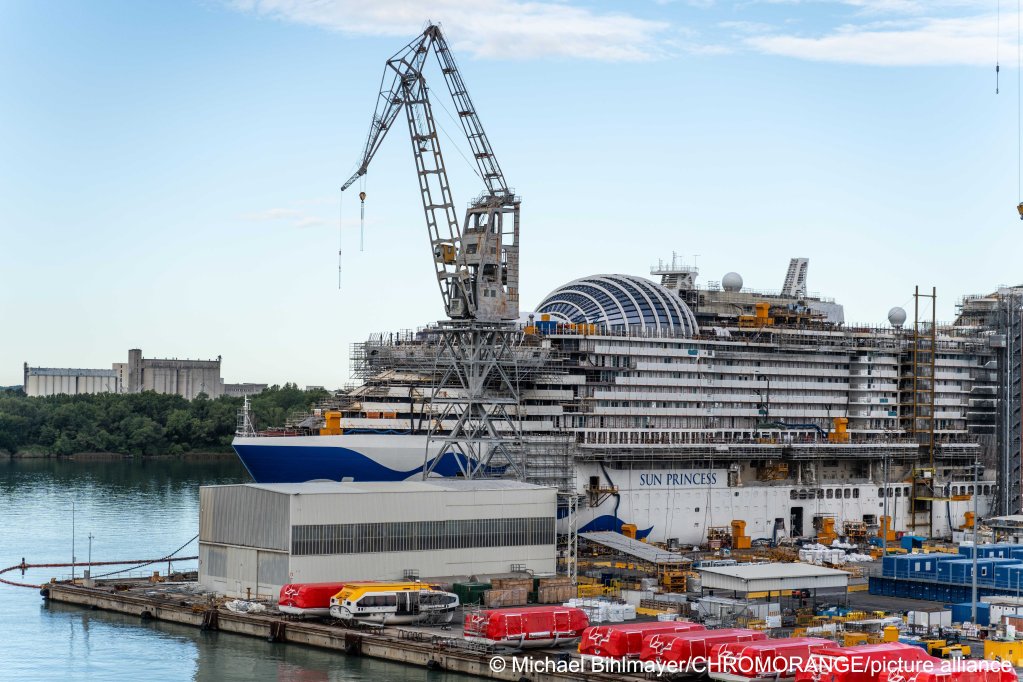
Although Cisint says she is not against anybody, she argued that because of family reunifications and a higher birth rate in the Muslim population compared to the indigenous Italian community, the numbers of Muslim migrants had become "too many for Monfalcone," reported AFP.
Since December, Cisint has been placed under police protection after receiving a number of online death threats.
She calls the Muslim community in Monfalcone "very closed" and said she thinks Italian should be taught in the Muslim community centers, not Arabic.
It is "intolerable," she told AFP, that some Muslim women appear to be forced to walk behind their husbands, or that some Muslim girls are to school wearing veils.
Wearing a veil is a personal choice
Laura, a young Muslim woman born and raised in Monfalcone, told La Repubblica that "wearing a veil is each person’s own personal choice and has to come from within, from the faith someone has."
She denies that veiled women like herself in Monfalcone are forced to wear the headscarf.
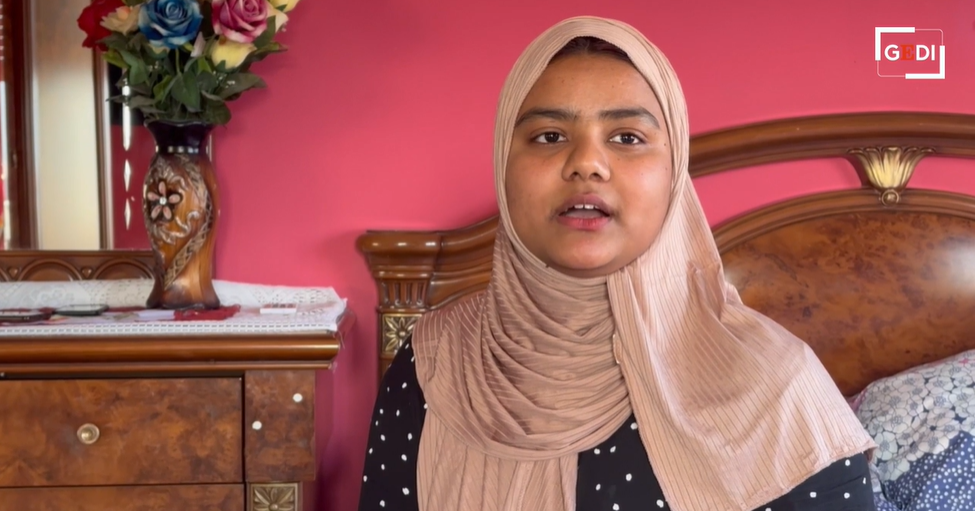
Haq told La Repubblica that donning traditional Islamic attire doesn't make a person anti-integration or a fundamentalist.
"Those are two different things, we don’t want to bother anyone," he said. "We want to integrate and be part of society."
Also read: Arrests made in Tuscany due to suspected exploitation of migrants
Cisint remains unconvinced.
"There are too many … you have to tell it like it is," she told AFP.
In March, Cisint’s book "Enough Already: Immigration, Islamization and Submission" was published in Italy. In the online blurb for the book, she is described as the "brave mayor from Monfalcone, threatened with death and under police protection."
Western values of freedom 'facing important challenges'
The book, which includes a foreword from League party leader Matteo Salvini, promises to demonstrate "how we can protect Italy, Europe and the Western values of freedom, in the face of important challenges."
As Italy prepares for June's European elections, Cisint’s League party is using disaffection with immigration as a campaign strategy.
Salvini has called the EU elections a "referendum on the future of Europe", alleging they will be a deciding factor in whether "Europe will still exist, or whether it will become a Sino-Islamic colony."
Haq told AFP that representatives from the cultural centers have "no plan B" if they lose their appeal in court later this month.
He said he fears that even if they win and are allowed to return to praying in the cultural centers, scars from the row will remain and continue to divide Monfalcone’s communities into the future.
